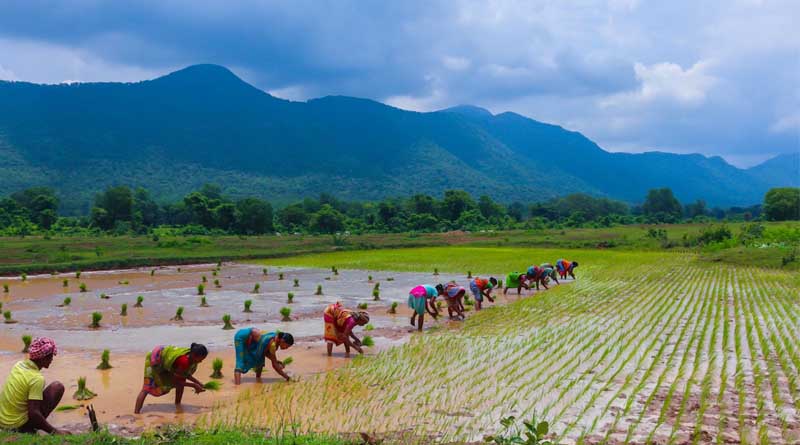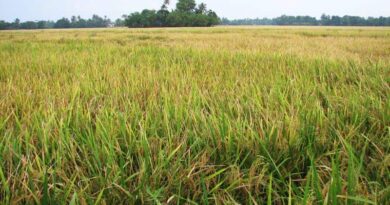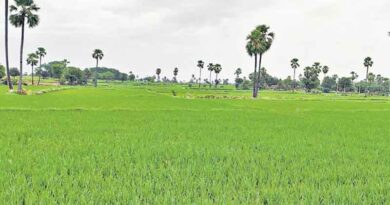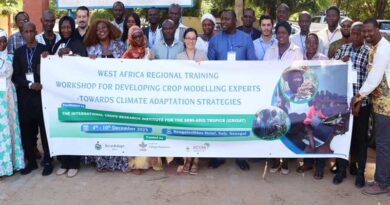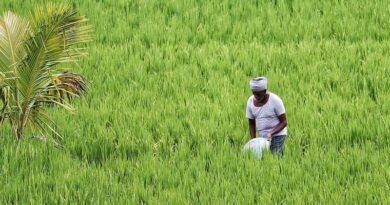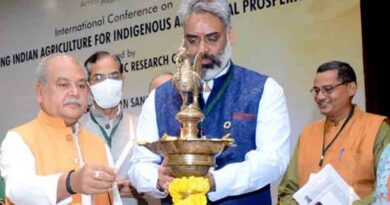India to See Wheat and Paddy Yield Drop by 20%: Government Takes Action on Climate Change Impacts in Agriculture
12 March 2024, New Delhi: The Government of India has recognized the significant impact of climate change on agriculture and the lives of farmers. Extensive field studies and simulation studies have been conducted across the country’s network centers to assess the effects of climate change on agriculture. The findings reveal that without adequate adaptation measures, wheat and paddy yields are projected to decrease by 20% in the coming decades. In response to these challenges, the government has implemented schemes and initiatives to enhance the resilience of Indian agriculture to climate change.
Assessing Climate Change Impacts
Crop simulation models were utilized to evaluate the impact of climate change on agriculture, incorporating the projected climates of 2050 and 2080. The results indicate that rainfed rice yields are expected to decline by 20% in 2050 and 47% in 2080 scenarios. Similarly, irrigated rice yields are projected to reduce by 3.5% in 2050 and 5% in 2080 scenarios. Wheat yield is estimated to decrease by 19.3% in 2050 and 40% in 2080 scenarios. Kharif maize yields are also anticipated to decline by 18% and 23% in 2050 and 2080 scenarios, respectively. These changes in climate patterns will have significant spatial and temporal variations, posing challenges to crop production.
Impact on Crop Yields and Nutrition Quality
Climate change-induced extreme events, such as droughts, have adverse effects on crop yields and the nutritional quality of produce. Lower yields and compromised nutritional content directly impact food security and the well-being of farmers.
Government Initiatives for Climate Resilience
The Government of India has implemented various schemes and plans to enhance the resilience of agriculture to climate change. The National Mission for Sustainable Agriculture (NMSA), a part of the National Action Plan on Climate Change (NAPCC), aims to develop and implement strategies for climate-resilient agriculture.
To address the challenges of sustaining food production in a changing climate, the Indian Council of Agricultural Research (ICAR), under the Ministry of Agriculture and Farmers Welfare, launched the ‘National Innovations in Climate Resilient Agriculture’ (NICRA) project in 2011. The project focuses on developing and promoting climate-resilient technologies in agriculture, specifically targeting vulnerable regions prone to extreme weather events like droughts, floods, frost, and heatwaves. The project encompasses short-term and long-term research programs covering crops, horticulture, livestock, fisheries, and poultry.
Key Focus Areas of NICRA
1. Identification of vulnerable districts/regions.
2. Development of crop varieties and management practices for adaptation and mitigation.
3. Assessment of climate change impacts on livestock, fisheries, and poultry, and identification of adaptation strategies.
Achievements and Future Steps
Since 2014, significant progress has been made under the NICRA project. A total of 1888 climate-resilient varieties have been developed, along with 68 location-specific climate-resilient technologies that have been demonstrated for wider adoption among farming communities. These initiatives aim to enable farmers to cope with the challenges posed by climate change and enhance the resilience of Indian agriculture.
The Government of India acknowledges the detrimental impact of climate change on agriculture and the livelihoods of farmers. Through initiatives like NMSA and NICRA, the government is actively working towards developing and implementing climate-resilient technologies and strategies. These efforts are crucial for ensuring sustainable agricultural practices, securing food production, and safeguarding the well-being of farmers in the face of a changing climate.
Also Read: Coromandel’s Gromor Drive Crosses 16,000+ acres of Drone-led Spraying
(For Latest Agriculture News & Updates, follow Krishak Jagat on Google News)

